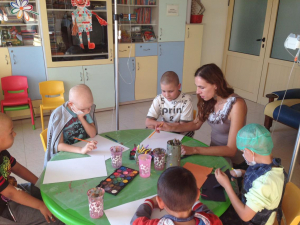
ARTON PROGRAM - The therapeutic power of the group
Creative projects involving group work - general musical performance or group painting, collage, sculpture - are useful in helping to explore and strengthen social...
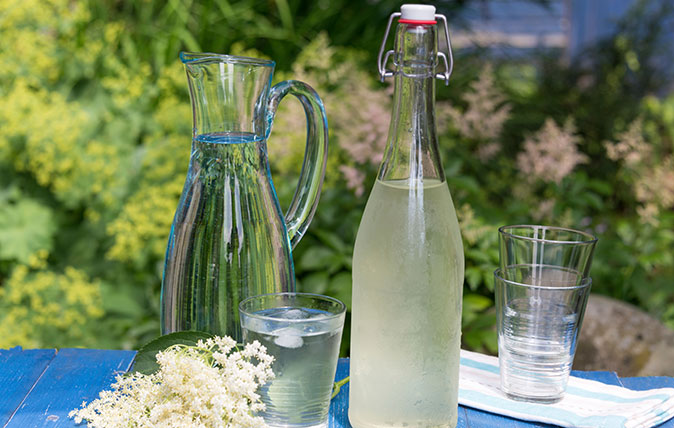
The English summer is said to start when the elder blossoms and end with its ripening berries. The citrus aroma floating down country lanes also heralds a bountiful harvest for the forager and home-brewer.
Diluted with water or lemonade, served with lemon and mint, elderflower cordial is just the thing for a summer’s day. It can also make a refreshing sorbet or tasty gin mixer.
When to pick elderflowers to make cordial:
The flowers taste best picked early on a dry, hot day, and speed is crucial: they should be used straight after picking.
Which elderflowers make the best cordial:
The cream-coloured heads (or umbels) are tastier than the white, and don’t worry if they smell unappetising at first once they’re infused, the heady scent is delicious.
Choose umbels free of discolouring and keep them dry until you’re ready to begin to make elderflower cordial.
An easy one to make, it’s best consumed within two weeks, although it’ll keep for a month if bottled and can be frozen in plastic bottles (leave some space, as the liquid expands)
20 elderflower heads
2½ pints boiling water
3½lbs sugar
1 sliced lemon 2tsp
Citric acid (available from the chemist)
Put all the dry ingredients into a clean pan and pour boiling water over them. Stir until sugar is dissolved. Skim off the surface scum. Cover with a cloth or lid. Stir twice daily for five days. Strain through a muslin and bottle.
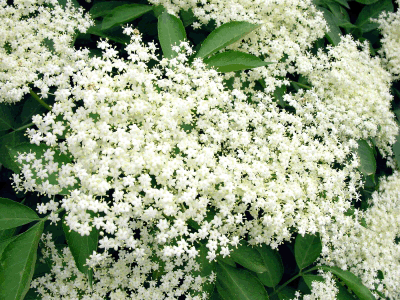
A summer drink similar to elderflower pressé
8 large elderflower heads
2 gallons water
2½lbs sugar
4 lemons
4tbsp mild white wine vinegar
Dissolve the sugar in boiling water, leave to cool and add the elderflowers, the juice of two of the lemons, slices of the other two and the vinegar. Cover with a cloth and leave for a day. Strain with a fine sieve or muslin, squeezing the flowers. Store in screw-top bottles. It’ll be ready in about a fortnight and should be drunk within a month.
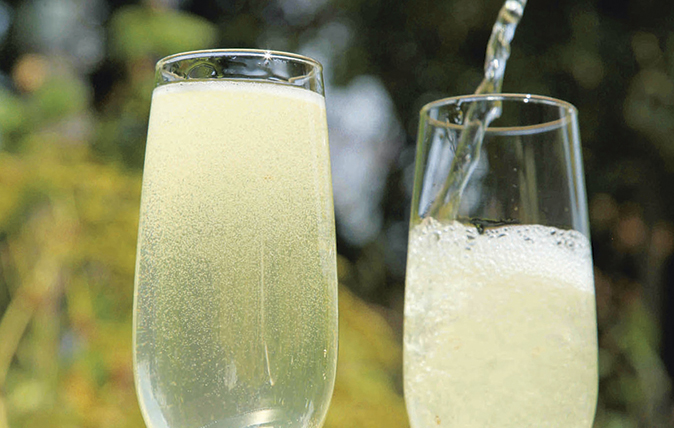
1 pint elderflowers (destalked)
8 pints boiling water
3lbs sugar
Juice of 1 lemon
Grated rind of 1 lemon
½oz yeast
Add lemon rind to the elderflowers, pour boiling water over them and stand for four days, stirring occasionally. Strain through a fine sieve or muslin, then stir in sugar, lemon juice and yeast. Ferment at room temperature (not below 18?C). When the bubbling has ceased, stir the wine and allow to settle for three days. Strain again carefully. Put in a demijohn to mature for three months, then bottle.

Creative projects involving group work - general musical performance or group painting, collage, sculpture - are useful in helping to explore and strengthen social...
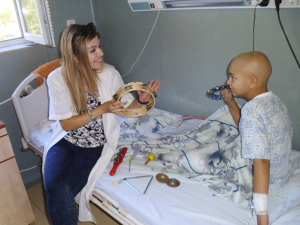
In the ARTON Program our team of oncopsychologists, art therapists and music therapists develops the process of children's creativity as a process of...
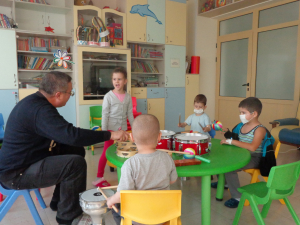
In ARTON sessions, creating a piece of music or a song is an emotional experience of coping and satisfaction for the participating children. They make friends with...
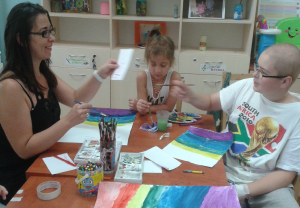
Painting provides patients with a spontaneous, plastic method of depicting thoughts and experiences. Painting with paints is not as structured as with pencil or...










